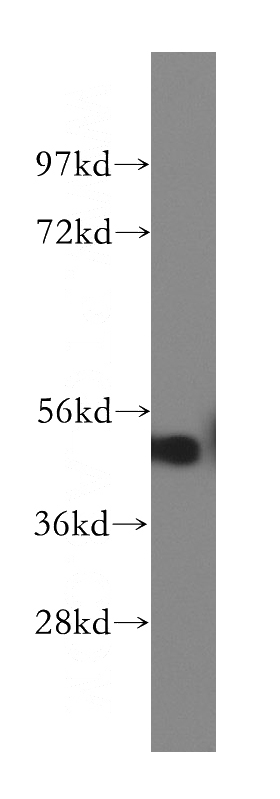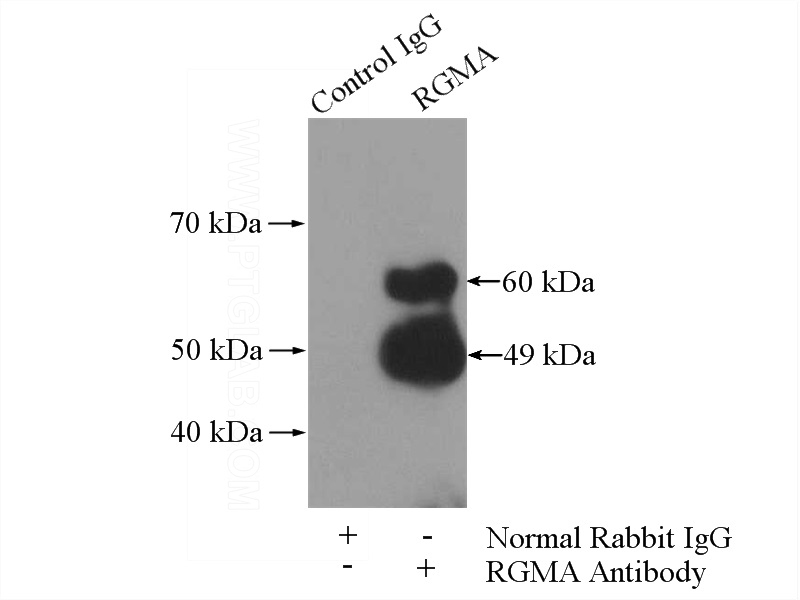-
Product Name
RGMA antibody
- Documents
-
Description
RGMA Rabbit Polyclonal antibody. Positive IP detected in mouse testis tissue. Positive WB detected in mouse testis tissue. Observed molecular weight by Western-blot: 49 kDa
-
Tested applications
ELISA, WB, IP
-
Species reactivity
Human,Mouse,Rat; other species not tested.
-
Alternative names
Repulsive guidance molecule A antibody; RGM antibody; RGM domain family member A antibody; RGM domain family antibody; member A antibody; RGMA antibody
-
Isotype
Rabbit IgG
-
Preparation
This antibody was obtained by immunization of RGMA recombinant protein (Accession Number: BC015886). Purification method: Antigen affinity purified.
-
Clonality
Polyclonal
-
Formulation
PBS with 0.1% sodium azide and 50% glycerol pH 7.3.
-
Storage instructions
Store at -20℃. DO NOT ALIQUOT
-
Applications
Recommended Dilution:
WB: 1:200-1:2000
IP: 1:200-1:1000
-
Validations

mouse testis tissue were subjected to SDS PAGE followed by western blot with Catalog No:114637(RGMA antibody) at dilution of 1:400

IP Result of anti-RGMA (IP:Catalog No:114637, 4ug; Detection:Catalog No:114637 1:400) with mouse testis tissue lysate 4000ug.
-
Background
RGMA, also named as RGM, is a member of the repulsive guidance molecule (RGM) family that performs several functions in the developing and adult nervous system. It regulates cephalic neural tube closure, inhibits neurite outgrowth and cortical neuron branching, and the formation of mature synapses. RGMA binding to its receptor NEO1/neogenin induces activation of RHOA-RocK1/Rho-kinase signaling pathway through UNC5B-ARHGEF12/LARG-PTK2 cascade, leading to collapse of the neuronal growth cone and neurite outgrowth inhibition. Furthermore, RGMA binding to NEO1/neogenin leads to HRAS inactivation by influencing HRAS1-PTK2-AKT1 pathway. It also functions as a bone morphogenetic protein (BMP) coreceptor that may signal through SMAD1, SMAD5, and SMAD8. RGMA is a molecular target for neuroprotection in retinal pathologies(PMID: 20457227). the frequent genetic and epigenetic inactivation of RGMA in CRCs and adenomas along with its in vitro function collectively support its role as a tumor suppressor in colon cells(PMID:19303019 ).
Related Products / Services
Please note: All products are "FOR RESEARCH USE ONLY AND ARE NOT INTENDED FOR DIAGNOSTIC OR THERAPEUTIC USE"
